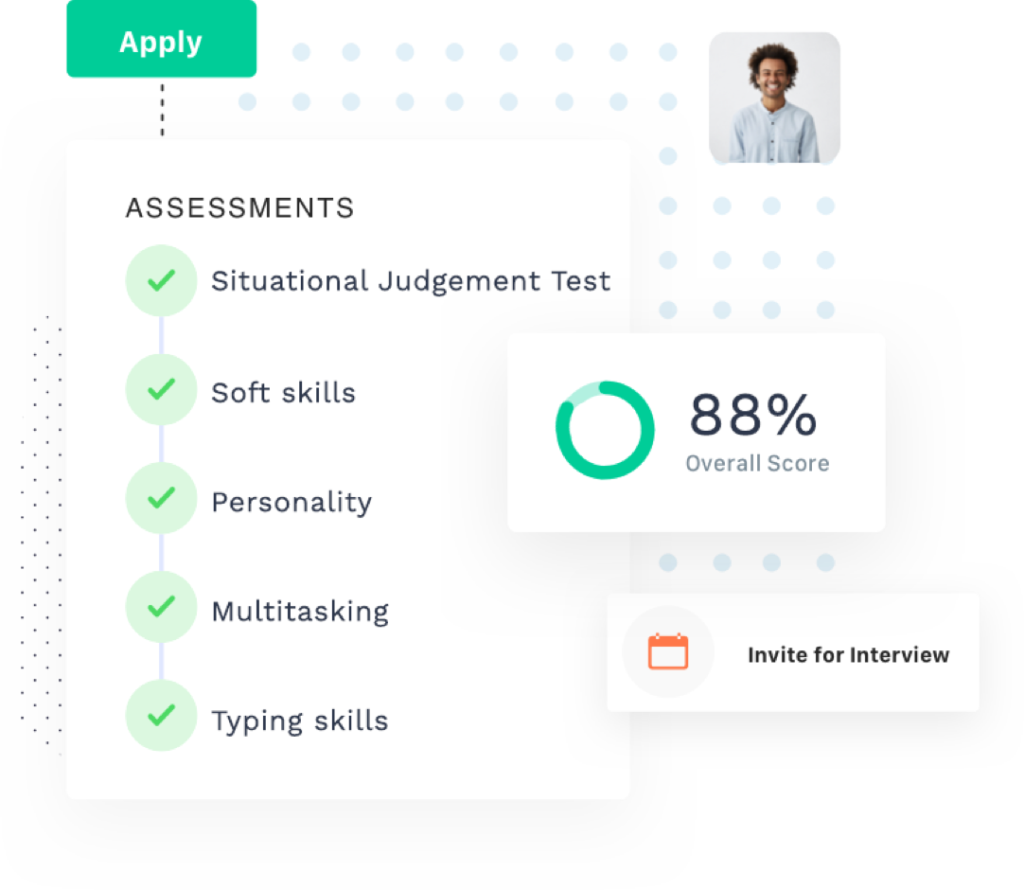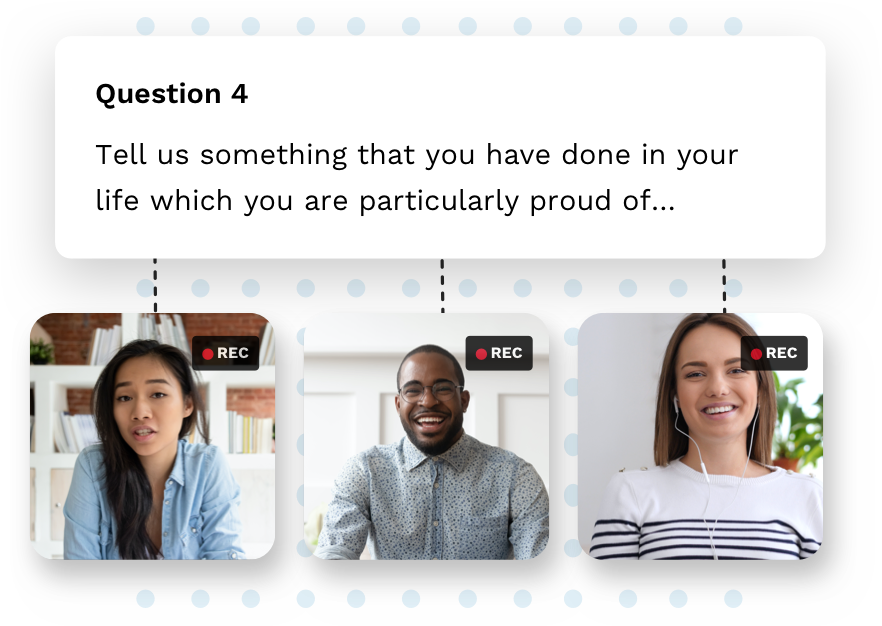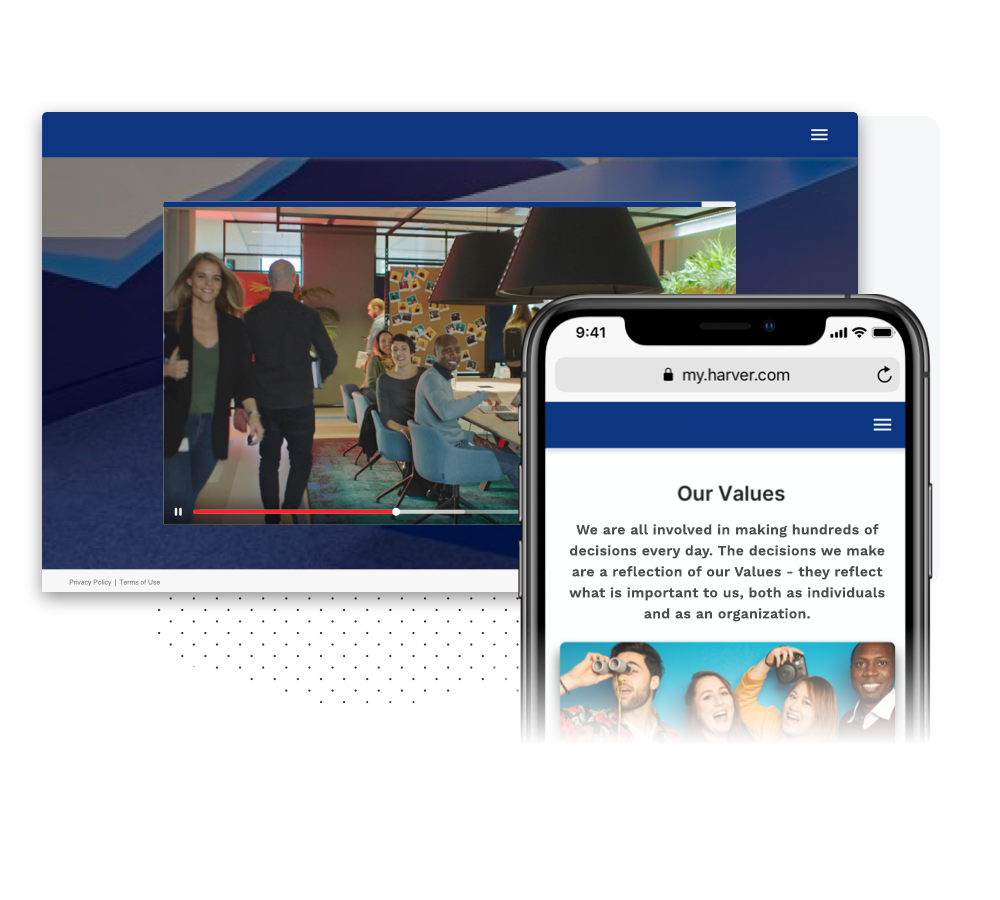
The better, faster way to hire while mitigating bias.
Harver makes it easy to hire for fit while increasing diversity of hires.



Our team of I-O psychologists start by working with you to identify the qualities and competencies that are most important for day one on the job. This upfront collaboration helps you avoid the inadvertent shifting of criteria during the interview and evaluation process. So you can give every applicant a fair chance when assessing relevant skills at entry, while simultaneously optimizing your ability to identify the best fit possible for every job.
Harver’s scientifically validated assessments collect objective data to help you predict role fit based on candidate behavior and potential. Choose from 15+ assessments that you can customize for time, difficulty level, industry, and more, including our soft skills assessments that are non-verbal to mitigate bias. And because assessment results are available in real time, hiring managers can act with speed while they mitigate bias.


Consistency is key for leveling the playing field for talent. Our rigorously validated assessments and real-time access to objective data help you consistently predict fit for role and culture. Plus, our video interviews with pre-recorded questions provide a convenient way to conduct inherently structured interviews where every candidate is asked the same questions in the same way.
Candidate expectations are on the rise, including an emphasis on companies demonstrating more diverse workforces. With Harver, you can highlight your commitment to diversity right from the first touchpoint with candidates, using interactive culture and realistic job preview videos. Highlighting your company’s commitment to DEIB and representation within your diverse workforce helps attract more diverse candidates.


We partner with our clients to help them solve diversity challenges. In addition to offering assessments and other tech solutions for more unbiased talent decisions, we also advise you on how your recruiters and hiring managers can apply these solutions in the most effective and fair way.
Provide an engaging candidate experience that sets realistic expectations, while monitoring adverse impact
Increase in
diverse hires
Enable quick ranking of candidates and/or auto-disqualifying based on minimum qualifications
Decrease in
time to hire
Demonstrate relationship between candidate scoring and quality of hire outcomes
Increase in quality
applications
Adverse impact is the negative effect that any HR process can have on a sub-population or sub-group. For instance, federal law in the U.S. prohibits discrimination based on protected class: race, color, national origin, religion, sex, age, or disability.
We work with you to determine data sources, either by using data you provide or conducting a job analysis with enough sample size.
We validate data accuracy, remove duplicate or irrelevant observations, identify data distribution, and conduct another validation pass for quality assurance.
Our best practice is to identify the majority group statistically based on highest pass/hire rate, though we can also pre-determine majority group via your preference.
We compare the pass rate for each minority subgroup with the majority group. If this ratio is less than 80% (the 4/5ths rule of thumb), we calculate how many additional people in the subgroup would need to pass/be hired.
We also calculate the 2 Standard Deviation Test, Fisher’s Exact Test, and Difference Scores for each minority subgroup, and compare against the majority group. By using multiple evaluation methods, we improve our ability to detect adverse impact, such as accounting for sample size and power of the tests.
If you share data from your assessments, our team of I-O psychologists and data scientists will monitor for effects of adverse impact. This allows us to continually mitigate adverse impact over time to help you build and grow the best-performing and most diverse teams possible.
Have questions about our People Science team or how we mitigate adverse impact?

See how Harver can help you support DEIB initiatives at your organization.
1. https://shrm.org/hr-today/trends-and-forecasting/research-and-surveys/Pages/DEI-M[…]s-.aspx?_ga=2.89917918.454339780.1666113567-220551615.1663092128
Ready to serve you with our full suite of talent solutions and a fresh look!